Deprived areas need vision – not victimhood – to level up, and Social Mobility Commission chair Alun Francis is delivering it with a ‘Multiversity’ built in Britain’s most famous seaside town
Alun Francis is practising what he preaches as chair of the government’s Social Mobility Commission at the Blackpool college he runs.
In a town where deep structural economic challenges lie behind the neon lights and candy-floss charm, he is poised to realise his longstanding vision for the UK’s first ‘Multiversity’.
This unique £65 million project will expand access to degree-level learning through flexible courses, tailored to Lancashire’s skills needs. It will, Francis believes, help to finally shift the dial on social mobility – “the signature problem of our times” – in a town that tops the charts for having the lowest male life expectancy and the second-lowest employment rate in the country.
Having spent his entire career trying to solve the challenge of ‘levelling up’ from all angles of the public sector – local authority (Manchester and Oldham), combined authority (Greater Manchester), FE (13 years leading Oldham College) and nationally through the commission, his passion sometimes spills over into exasperation at the forces holding it back.
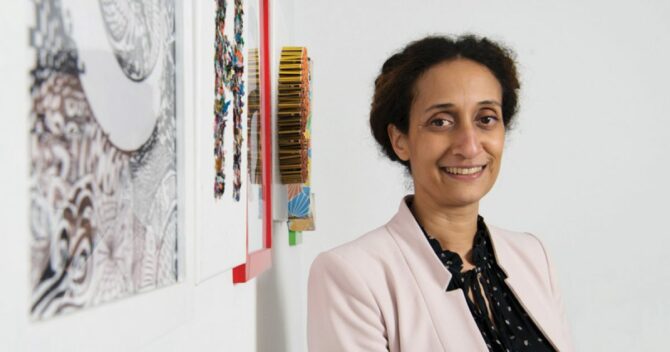
Birbalsingh and controversy
Mindful of his responsibility to uphold Blackpool and The Fylde College’s (B&FC) reputation, Francis has until now been less outspoken than his commission predecessor, Michaela Community School head Katharine Birbalsingh, who achieved infamy as “Britain’s strictest headmistress”.
In 2023, she handed the reins to her “brilliant” deputy Francis, blaming her “propensity to voice opinions… considered controversial” for her decision to step down.
Although Francis prioritises “building bridges” more than Birbalsingh (she recently called Bridget Phillipson a “patronising cultural Marxist”), he shares many of her views, including her disdain for the national narrative of ‘victimhood’.
The Cabinet Office-sponsored commission he leads, which was formed in 2016 to assess and promote the UK’s progress on social mobility, now faces an uncertain future amid the latest quango-cutting drive.
Perhaps he feels the time is ripe to be more vocal.
He explains he gets “frustrated in education when everything’s about disadvantage”. Disadvantage, he says, is “so badly defined” that much of the time people “never actually work with the most disadvantaged – very often it’s about the polite poor, who will do well anyway”.
He accuses some prominent educationists of caricaturing working-class kids in a negative way without considering the children from those backgrounds who display “model behaviour” and “amazing attendance”.
“The flip side is an equally insulting argument that middle-class kids are bland and achieve only because of their parents’ privilege. They’re all caricatures. We want a world where every individual has the potential to achieve.”
He also lashes out at graduates who “dominate the policy world” and view non-graduates as “victims” they “don’t understand”.
A month into his role at Blackpool in 2023, Francis sent a team of staff to Birbalsingh’s school to learn from her approach. They returned energised with ideas to raise the bar on student expectations.
B&FC proceeded to ban mobile phones in classrooms (unless permitted for learning) and prohibited vaping on campus grounds. Staff in designated blue jackets conduct regular patrol duties to enforce such rules. Although “one or two staff” are not fans of these patrols, they are “non-negotiable” for Francis.
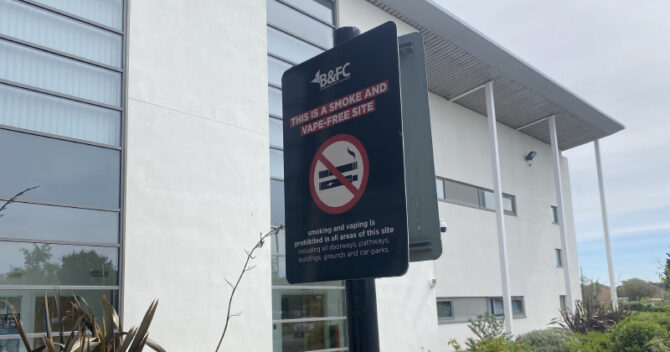
Blackpool renaissance
Since taking the helm at B&FC, he has been too busy juggling the role with his day a week at the commission to do much sightseeing. But he knows Blackpool well. When his seven children were younger he would rush his asthmatic second youngest son from the family’s Manchester home to Blackpool beach when he was having an attack, as “the air’s just better here”.
Many of this area’s residents are welfare claimants who moved from nearby Liverpool and Manchester for its cheaper housing.
Francis sees the area’s decline as symbolic of a “very British” problem. Like many left-behind towns, Blackpool has been neglected by our finance and commerce-dominated, London-based economy and a “welfare system that allows people to move here without taking any care for the outcome”.
“You end up with ghettos where everybody’s seriously poor, which has knock-on effects. Getting neighbourhoods right is key to getting schools right, which is key to skills,” he says.
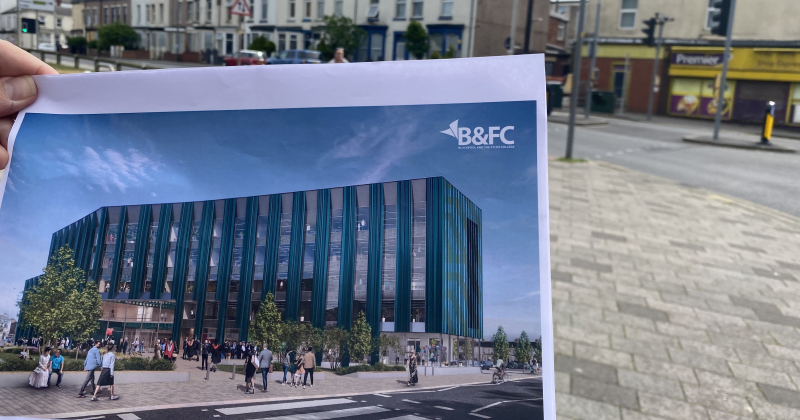
These rundown houses are about to be torn down to make way for Multiversity Blackpool, with residents relocated to better-quality homes while the college works with the council to improve their skills.
The Multiversity’s flexible routes into and through higher education, incorporating digital and AI, health and life sciences, and business and engineering, will serve Lancashire’s wider economy, including its large manufacturing base and the new National Cyber Force base in Samlesbury.
Francis believes that by “broadening opportunities” for those in and out of work to improve their skills across different life stages, the Multiversity approach “really epitomises where FE should go”.
The Department for Work and Pensions is moving its new office into the area too as part of wider regeneration plans to diversify Blackpool’s economy away from day trippers and stag dos to more “high-end shopping and better-quality attractions, but without losing the town’s soul”.
Multiversity represents a gamble for B&FC, which is borrowing £16 million from the council to fund the project and paying it back through rent on the completed building.
Given that universities elsewhere are scaling back amid deteriorating finances, is this not an odd time to be expanding HE?
Francis denies that Multiversity represents competition to Lancashire’s universities. It will instead provide “what only colleges can deliver – highly intensive support for students and a real understanding of their needs. We’ll constitute their lessons into one day if we can, so they can work four days a week.”
Multiversity is a term coined by Andy Haldane, who in 2018 (three years before becoming the government’s levelling-up tsar) suggested that multiversities could “operate like career roundabouts, with turnoffs into both work and study”.
Like Haldane, Francis is a fervent critic of the country’s “one size fits all” system of “narrowly defined academic success”. He believes that a decade of social mobility programmes “focused on getting poor children into elite universities, then into London jobs at magic circle law firms” has now “run out of road”, having “neglected” adults and not led to any wider community benefits.
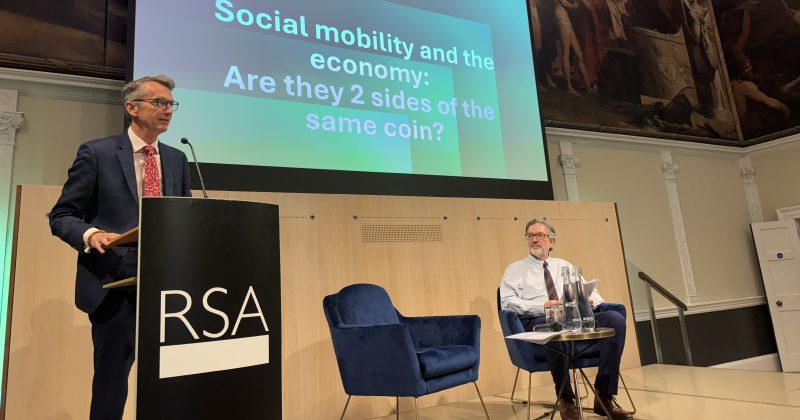
Welfare woes
Francis saves his harshest criticism for our welfare system.
He backs controversial government proposals to overhaul Personal Independence Payments (PIP) for those with a health condition or disability, which he describes as a “very spurious system” of people “sometimes acquiring, sometimes seeking labels” to boost their benefits. “You can’t blame people for doing that, if that’s how the system works.”
He knows of some mainstream schools where most pupils are now seen as having a special educational need, and puts some of this down to parents seeking “external explanations for bad behaviour”.
Meanwhile, families with four or more children and a household income of over £80,000 a year are a “neglected part of the social mobility story” as they live in “relative poverty” but “never figure in social mobility stats”.
But “pouring money” into more welfare support would not “get to the root of the other things sitting behind disadvantage – a lack of skills and the need for family support”.
Francis says: “Not all disadvantage is about money. It’s about behaviour and being looked after properly.”
He also considers it “bonkers” that the DWP can categorise young NEETs (not in education, employment or training) as unable to work on mental health grounds, and then expect not to see them for a year.
“They certainly don’t need writing off at the worst possible time in life to be doing nothing,” he adds.
Francis is familiar with our welfare system from his own upbringing in a similar poverty-stricken seaside town, Colwyn Bayin north Wales. His “downwardly mobile” parents never worked again after he turned 10. His dad, a former church minister, “kind of lost his faith” and his brother’s alcoholism worsened after he was signed off on disability benefits, thereby providing him with regular money for booze at a time when his family was trying to encourage him to give it up.
“There are genuine issues around what the welfare system does to human beings which you wouldn’t do to your own family,” he says.
But in talking about his background, he worries that people will think it’s this that qualified him for the commission chair role, which is not the case.
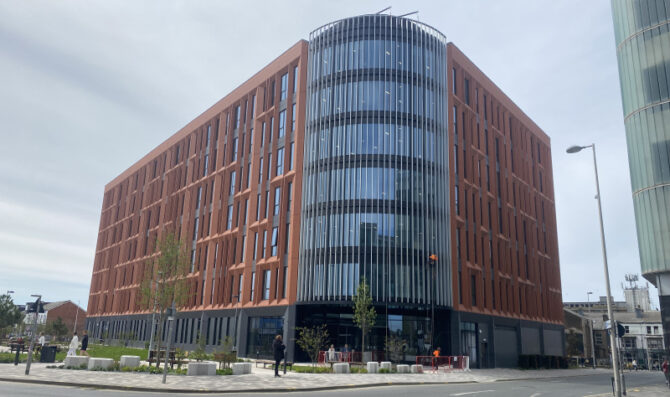
Diversity drama
In fact, his social mobility credentials partly stem from his work on aspiration-raising regeneration programmes. They include a £77 million project in east Manchester which was found 10 years later to have cut crime by 40 per cent and unemployment by 25 per cent.
Six years after Oldham’s race riots, Francis worked for the council there on tackling community segregation by closing seven schools and opening five new ones in “neutral” community areas.
A subsequent DfE report found that blending these divided communities “increased trust” between them but did not boost school performance or “liking” between social groups.
Francis is therefore deeply sceptical of the prevailing narrative among some big-name consultancy firms that ethnic or gender diversity increases success.
Oldham College later sponsored one of the new schools, Waterhead Academy, and in a “joke that became serious”, Francis took up a friend’s suggestion that he should run the college, despite his lack of FE experience.
A mentor arranged for him to “learn the ropes” by visiting Sir Peter Birkett at Barnfield College in Luton, which at the time sponsored two schools achieving impressive academic results. But Francis was left unimpressed during his “very strange” trip to Luton.
After being driven to the college in a limo and offered a trip to the races, Francis asked Sir Peter how it was that his schools were performing so well. Francis says he credited the “energy boosting” bananas that pupils were given after lunch.
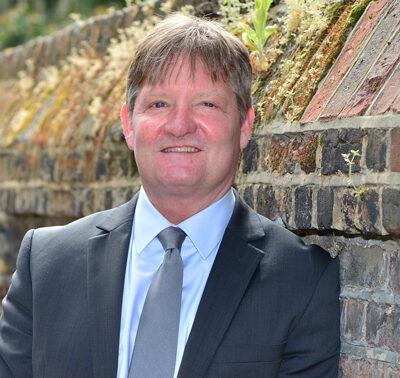
Sir Peter was knighted in 2012 for services to FE and the academy movement, but was later embroiled in two government investigations over grade massaging and ghost learners.
These found a “lack of oversight” by governors into improper use of college funds for Sir Peter’s pay-off, foreshadowing a similar turn of events more recently at Weston College for which Francis at the time voiced his “anger and disappointment”. He would like to see the FE sector being “braver” at calling out such bad behaviour.
“It’s still very easy for people to create the impression that somehow they’re wonderful… ministers aren’t helpful because they always want their heroes, so people cozy up to them. Then it all gets a bit uncritical”.
Gaming the system
Francis is aware that some of his views clash with the FE mainstream.
He disagrees with the “increasing view” that the “curriculum needs to be thrown up in the air to start again” and was in a “minority of one” for thinking the government should have scrapped BTECs last year. By keeping both BTECs and T Levels, he is concerned that “everyone’s just going to do the easy one and the hard one will never happen”.
He claims the current curriculum and attainment system is vastly better than the one in place when he started out in FE, when few exams took place. Back then, he says, many teachers “didn’t really know how to teach” as “we didn’t talk about pedagogy”.
Meanwhile, Oldham’s academies were focused on “institutional performance” rather than “improving learning”. He accuses the then-prevalent Greater Manchester Challenge system of school improvement (which was based on the celebrated London Challenge) of teaching people “how to cheat” by sharing techniques to jump grades, rather than teaching “theories of learning”.
In 2016, Francis pulled the college out of academy sponsorship altogether.

‘Crackpot theories’
Francis sits on Ofsted’s inclusion reference group but takes an opposing line to many of its members. He believes the watchdog’s current focus on inclusion will mean schools and colleges having to “bend over backwards to accommodate everybody”.
“The inclusion I’m worried about is the poor kid that comes in wanting to work hard, but the rest of the class are messing about and won’t let them. How is that inclusive?”
Francis claims there is “embarrassed silence” when he poses this question to Ofsted.
He believes there are “a lot of crackpot theories going around the inclusion world at the moment”, one being around “trauma-informed practice”, which has become widespread in FE colleges. Francis believes that not all bad behaviour is down to trauma, and “if you let [young people] behave in daft ways, they’ll do that more”.
During a 1990s community project in south Manchester in which local youths were “running riot”, he recalls how at a concerned community hall meeting of “woolly jumper wearing” locals, the youths’ ringleader “opened the skylight and urinated” over everyone.
“They all thought it was trauma. Honestly, traumatised kids don’t do stuff like that.”
Francis is concerned that so-called behaviour management ‘experts’ are cashing in on young people’s perceived mental health problems. His inbox is “full of people writing to me with all kinds of snake oil”.
He puts the theory that “we all have different learning styles” into the snake oil bracket, instead advocating that “our brains all work pretty similarly… which is great for teachers, because they don’t need 99 different techniques”.
Francis is also concerned about a sense of “learned helplessness” among young people, particularly those who fail their English and maths GCSEs and falsely believe they are “rubbish” at them.
And school leaders who complain about having to “do the washing and buy people food” should “shut up”. “Everybody’s always done that. Be discreet when you need to do it.”
He asserts that “half the education system is turning into a therapy centre”, which is not its role. Francis believes that sometimes, college governors “like to climb into the safeguarding issues because they find it interesting”.
But he adds: “we’re not a therapy unit, we’re an educational centre”.
“People come to college to learn – that’s the best therapy we can give them,” he concludes.


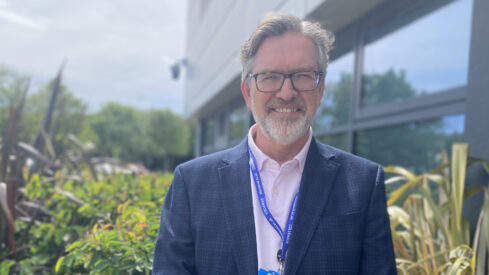










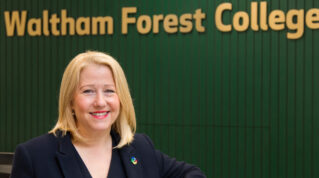


Your thoughts